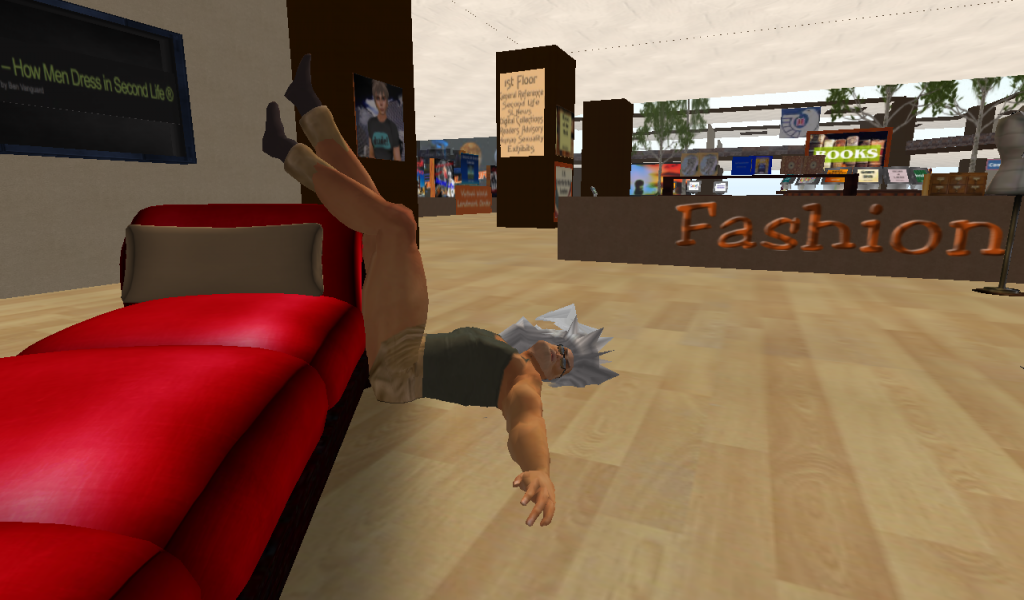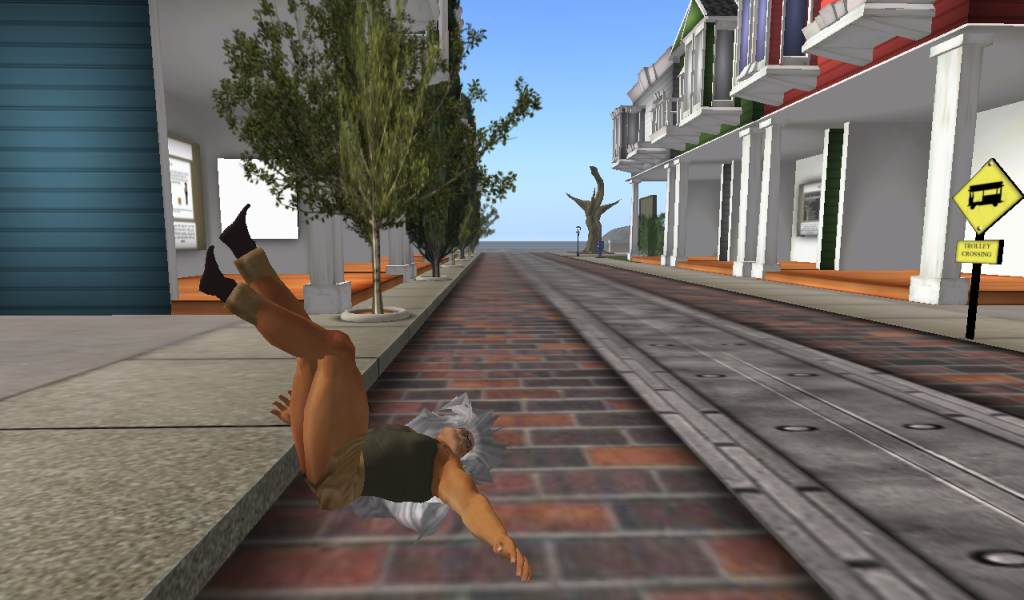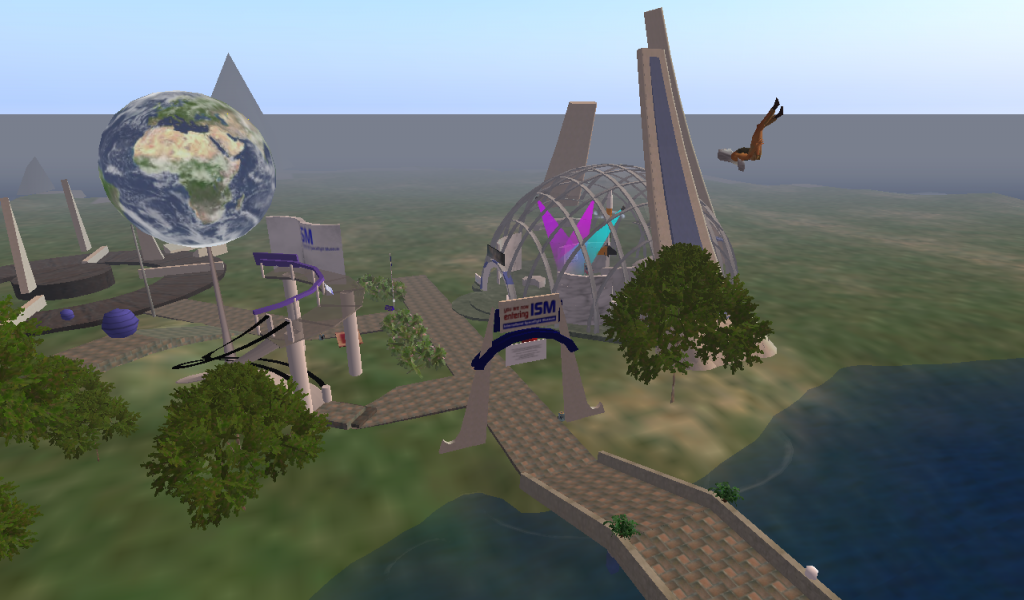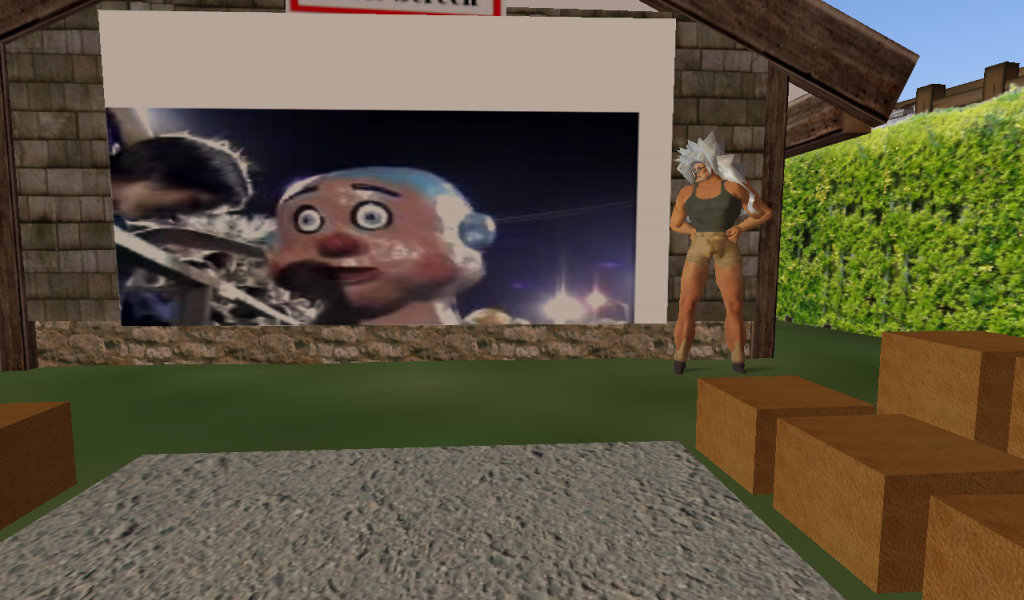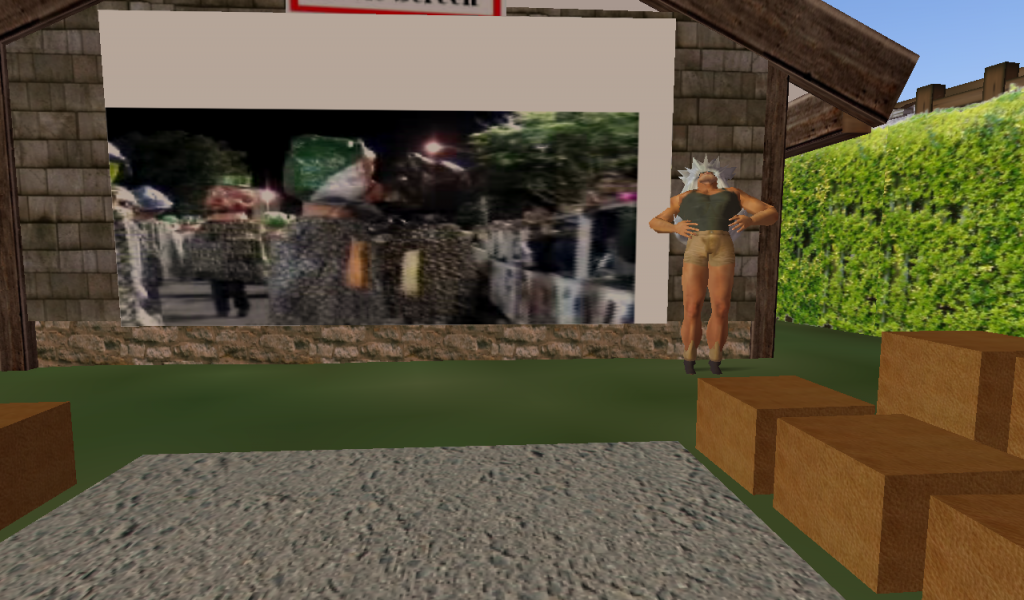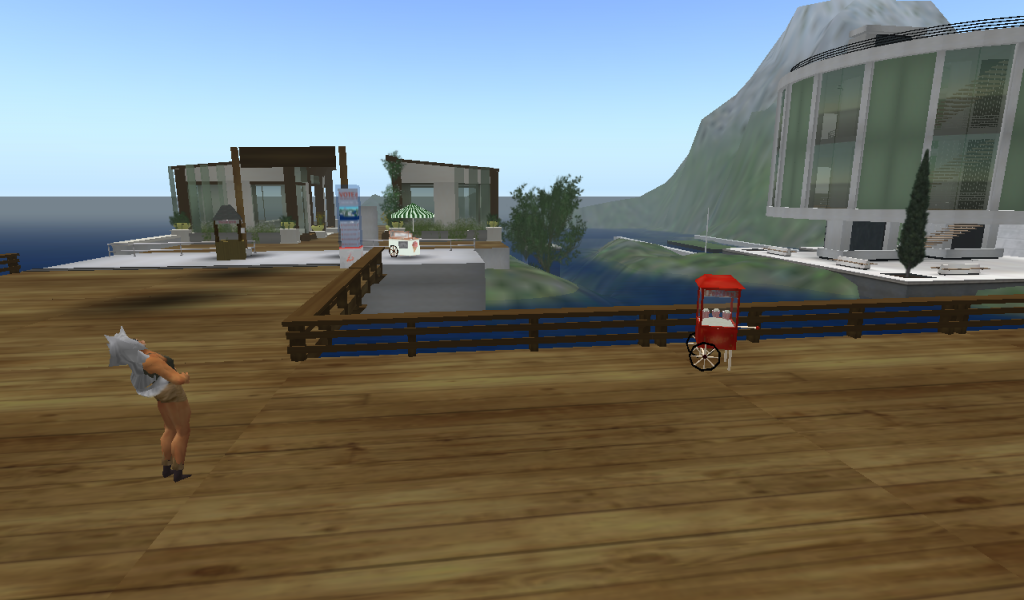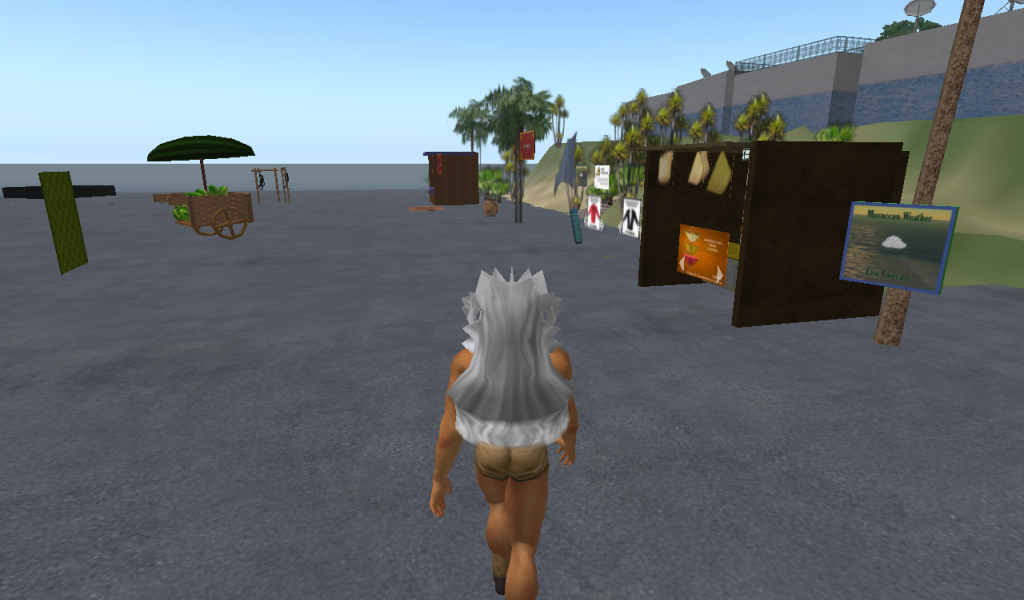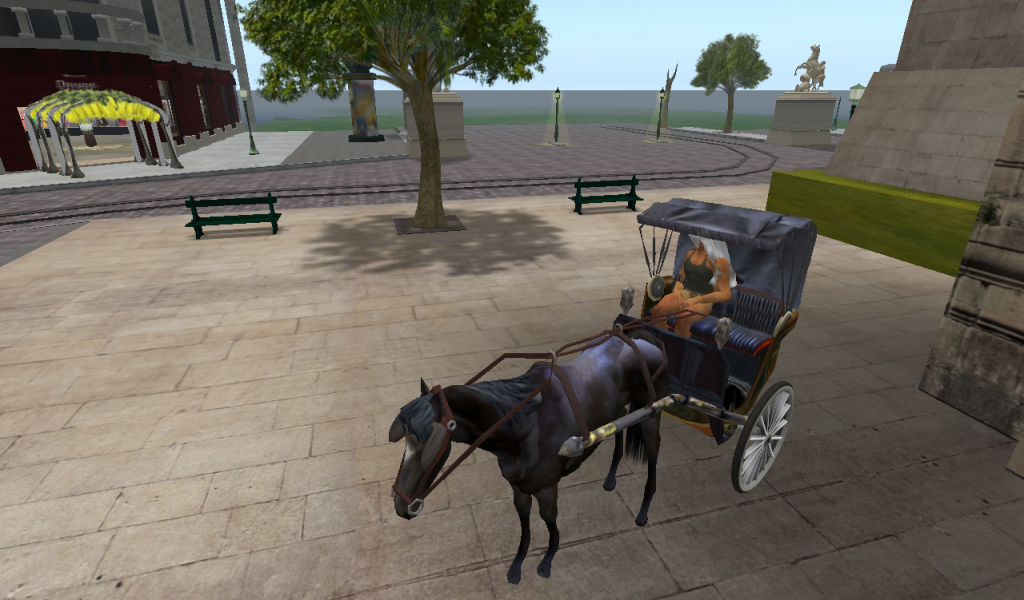In class on…I think Monday? We thought about whether we would consider ourselves “gamers”, and talked a bit about the role of video games in our lives. Now my initial reaction was, no, I am not a gamer. I have not spent a significant amount of time in college playing video games. But thinking back, I noticed the thread of different video games over the course of my life, and they have always been present in some way or another. One thing that struck me was how many different forms they have taken. I think of “gaming” as playing ambitious, difficult solo games on the computer or on one of the main consoles, or perhaps playing some online multiplayer games like WoW. But, obviously, there’s many other types of video games, and I’d like to trace my history with video games, or “digital games”, as we should perhaps call them.
I faintly remember the first computer our family had, some old beast whose monitor display consisted of a bunch of rectangles which could either be ‘on’ (yellow) or ‘off’ (black). I don’t know what this computer even did, really…I don’t think it had Windows on it, so it probably had some way of doing word processing through DOS. But it also had two games that I remember: Reader Rabbit, a simple educational game (I was probably about 5 or 6, I think), and a BITCHIN game called “Midnight Rescue”. You had to use critical thinking skillz to figure out which of 5 janitorial robots was hiding the evil mastermind that was going to make the school disappear at midnight using invisible paint. I think I played that quite a bit.
My parents never wanted us to have video game consoles, but soon we bought our next computer, a Gateway with Windows 95 on it and a whopping 1.6 GB hard drive! On that particular Christmas day, we also got Myst, a cutting edge game to go with our new ‘cutting edge’ computer. I like to think of Myst sort of as the Twin Peaks of computer games; an odd, lovingly created and inscrutable game that came somewhat out of left field and opened up a lot of possibilities for what the medium could do artistically. I think I was about 7 or 8 at this point, and my brother, dad and I (and sometimes my mom) played Myst as a family. It would’ve been too difficult for my brother (a year and a half younger than me) and I to play on our own, but I think we learned a lot the way we did it.
I also remember playing a lot of games produced by the company “Humongous Entertainment” on that computer. They were cartoony, puzzle-solving narrative games featuring fantastic characters like Pajama Sam and Spy Fox. Those games were really fantastic…that probably went on through grade school, accompanied by games like Backyard Football and Backyard Soccer. Man this is a nostalgia trip.
At some point we bought Riven, the completely-fucking-impossible sequel to Myst. The interest of my dad and I waned, but over a course of about 5 years, playing off and on, my brother somehow beat that ludicrous game. He’s continued playing the occasional computer game ever since. He’s played most of the games released in the Myst series, as well as Black & White (which Jenkins talks about, I think), Half-Life 2, Bioshock, Fallout 3, all critically acclaimed games that seem really amazing when I’ve watched him play them. I haven’t seen much of Bioshock and Fallout 3, because he played those after I left for college, but Half-Life 2 was a pretty incredible game. He also told me about Portal (made by the same company as HL2), which is pretty short and which I played a couple of years ago (it’s really amazing), and plays some Team Fortress from time to time — a fantastic online killing game, like Halo but much more fun, from what I can tell (because most people who play Halo online seem to be complete assholes about it). I include this paragraph only because a lot of my knowledge about what’s going on in the mainstream, critically-acclaimed gaming world comes from my brother.
My gaming habits, before dwindling early in high school, branched off into the Age of Empires / The Sims phase that I had in middle school. I played a shitload of Age of Empires 2: The Conquerors Edition, and learned mad medieval history from that shit whilst playing it. I still remember some of the little archaic-foreign-language things that the units say when you tell them to do things. The Sims was good, but like I said in an earlier post (as an analogy for my blog), I always liked designing the house way more than trying to keep my damned little characters happy. I think internet games were starting to get big at this point, as well, but I never had a strong habit around those except for that game N, which I mentioned, and was mildly addicted to at some point in high school. Check it out at yr own risk. Oh also, freshman year of college I had a few weeks of unhealthy playing of “Bloons”, which is a fucking stupid, frustrating, horrible internet game. Never play it.
As my computer game playing dropped off in high school, my diet shifted to the occasional playing of more socially-oriented games with friends, almost all on Nintendo 64 (which may be the most perfect gaming system yet invented). Actually, mostly just the original Super Smash Bros. and Mario Tennis. Fantastic games which we still play sometimes when we’re home. Also, Mario Kart 64 was pretty big on my freshman hall. Now I play the original Smash Bros. or Rock Band every once in a while…once every 2 or 3 weeks, I would say.
I’m not sure exactly what conclusions to draw from all this…I just know that it was fun to do, and I recommend tracing your video game history like that. I guess what strikes me most, as I said at the beginning, is how diverse a set of experiences these different games provided for me: there’s the purely-educational, like Reader Rabbit. Then there’s the more abstractly educational, like Myst (which I associate with a similar feeling to having books like The Golden Compass or The Lion, the Witch, and the Wardrobe, slightly above my reading level at the time, read to me at bedtime) and the Pajama Sam/Spy Fox games. These games taught ‘critical thinking’ but also gave me experience in consuming and enjoying narrative and visual art. Then there’s the “god games” like Age of Empires and the Sims, which were also educational in a variety of ways. And there’s internet games (which seem to me the least redeemable) and social, console games, which are somewhat associated with nostalgia because they’re almost all on N64.
They all have enriched me in different ways, but I don’t want to seem like I’m saying video games are only useful if they’re ‘enriching’/’educational’, because if all art was like that, it would be friggin obnoxious. I think many of these games were both enlightening and artistically beautiful, which is what much of the best ‘art’ is. So, games…they get a bad rep! Makes me want to pick up one and play it, I just wish it was winter and not spring, because I would be much more inclined to pick up something like Bioshock, which I’ve been sort of interested in playing for a long time. I guess I need to pick one soon for my project, I just haven’t quite figured that out yet.
